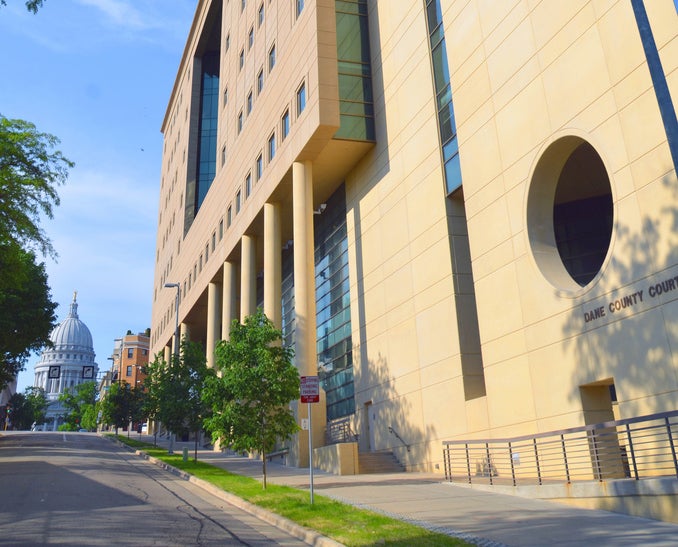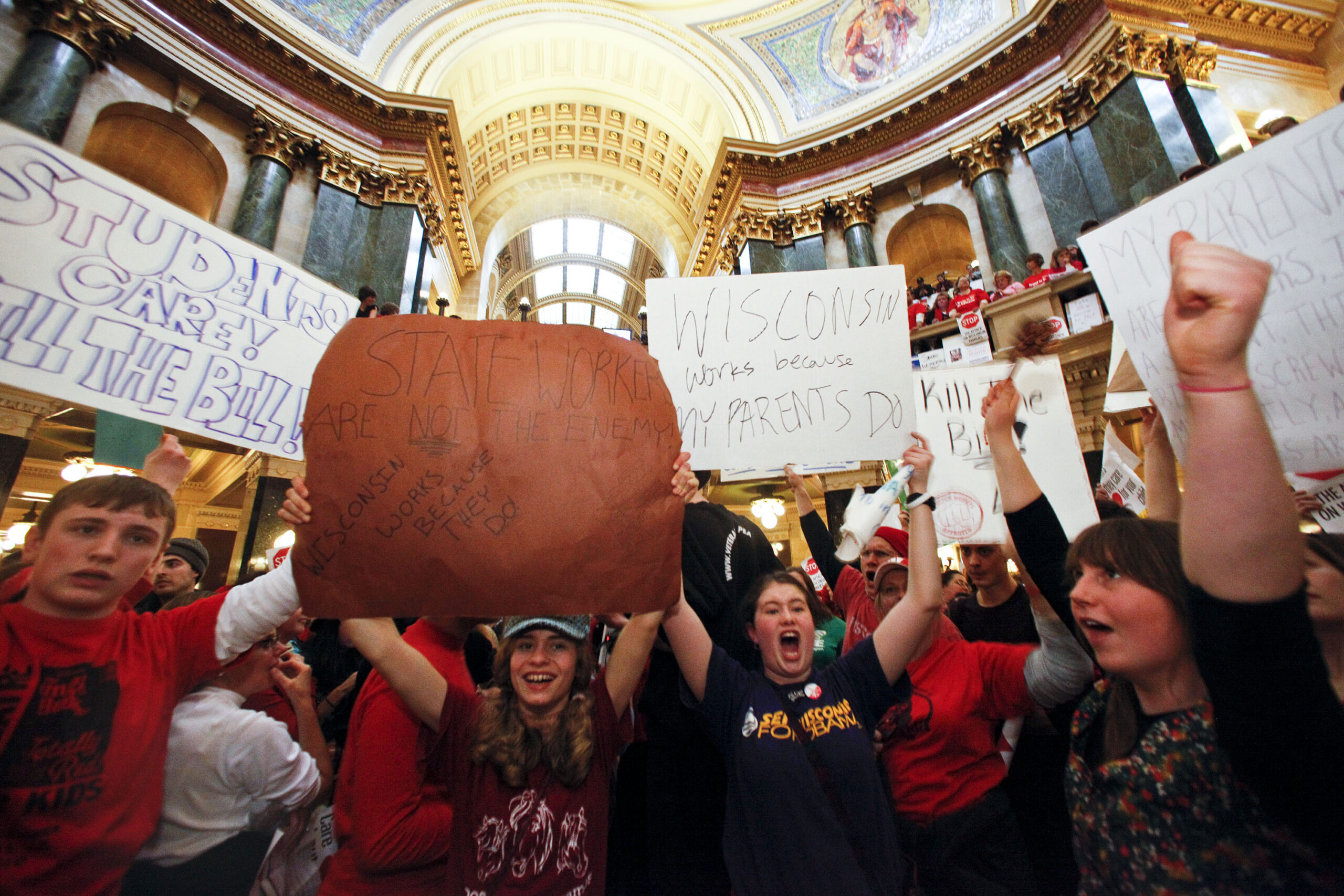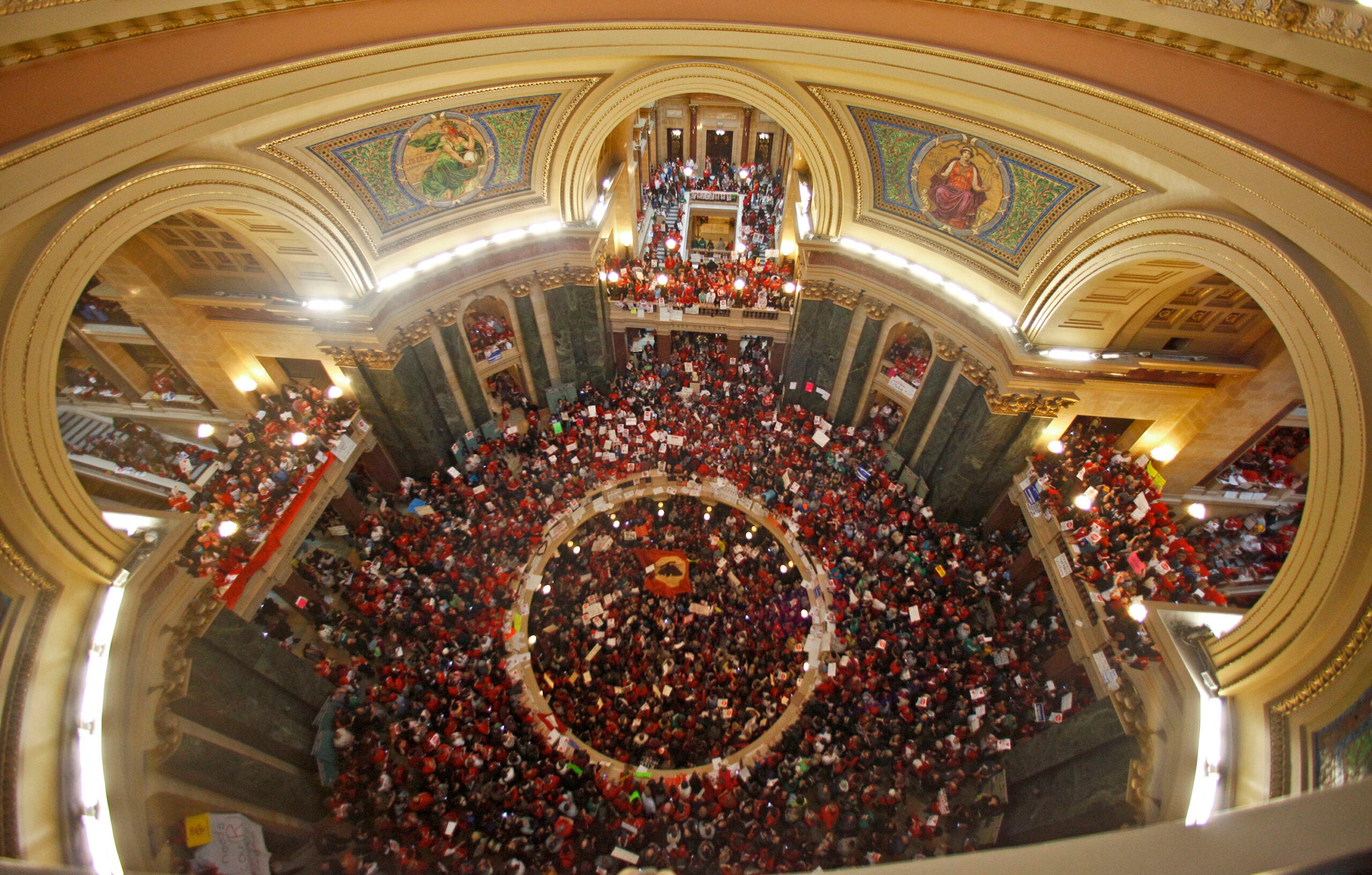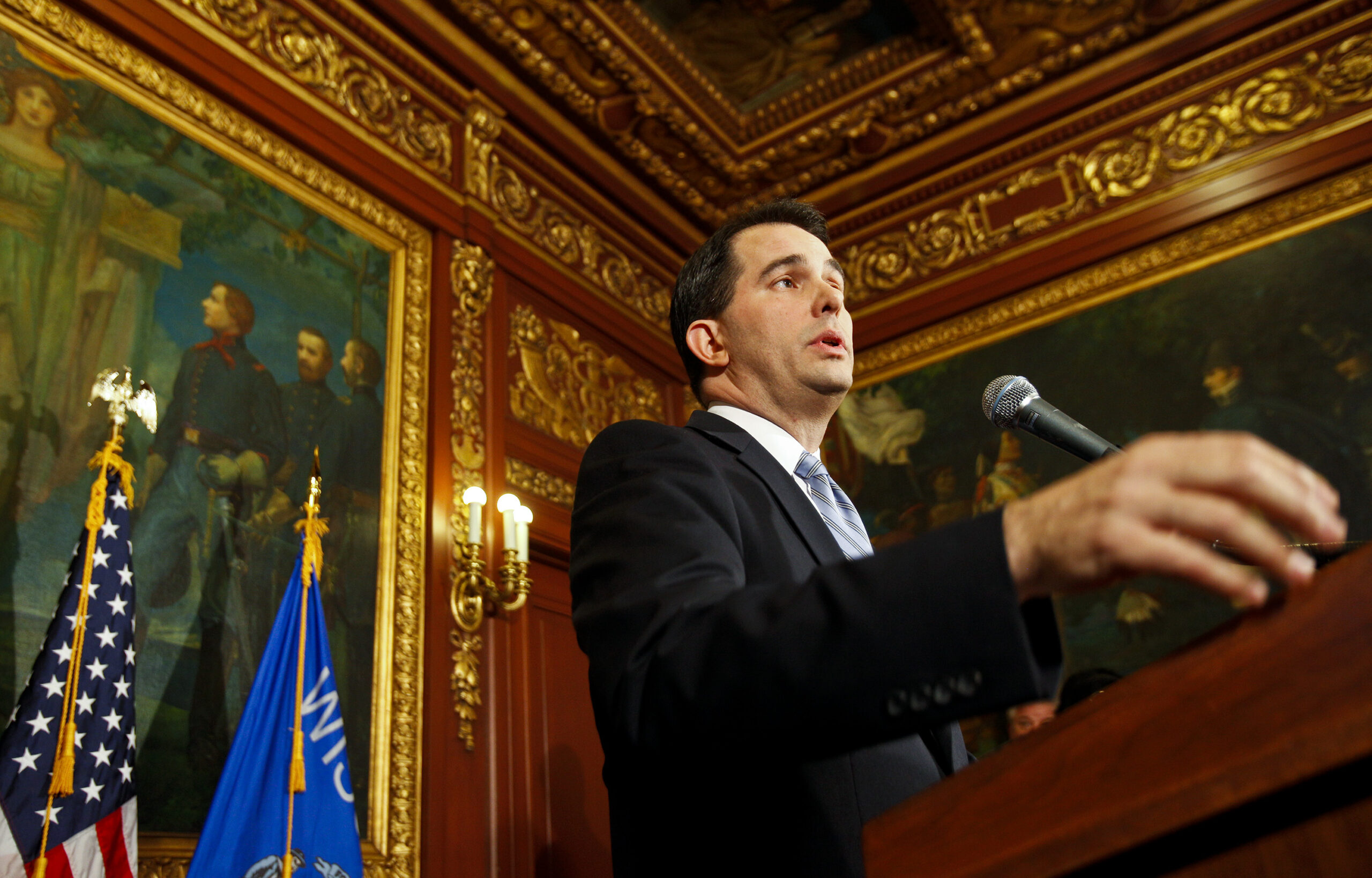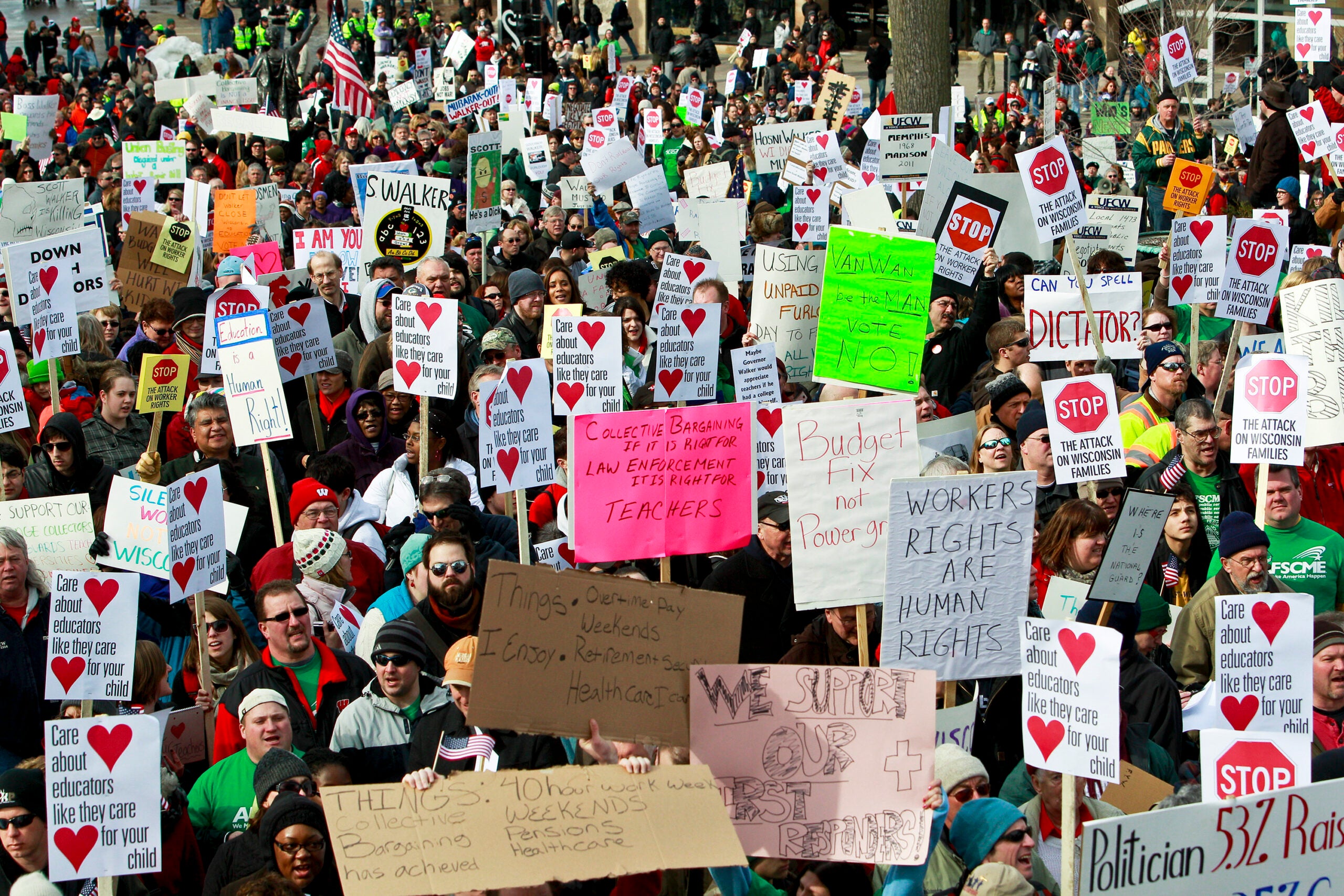The judge hearing the case challenging Wisconsin’s right-to-work law questioned how the law got its name during arguments at the Dane County Courthouse earlier this week.
After Assistant Attorney General David Meany used the phrase “right to work” several times during arguments, Judge William Foust piped up, asking: “Why do you call it a right-to-work law?”
Meany replied that he was “not sure of the genesis of that.”
Stay informed on the latest news
Sign up for WPR’s email newsletter.
The phrase “right to work” as it’s used today refers to laws that ban mandatory union dues. Meany said he assumed it went back to the days when the U.S. had “closed shops” that hired only union members. But as Foust noted, closed shops were outlawed by the Taft-Hartley Act of 1947.
He asked Meany if there was “anybody alive today who has been denied the right to work under the Taft-Hartley Act.” Meany replied that he didn’t believe so.
Despite some skeptical questions, Foust ultimately rejected a bid by unions to immediately halt Wisconsin’s right-to-work law.
Wisconsin Public Radio, © Copyright 2025, Board of Regents of the University of Wisconsin System and Wisconsin Educational Communications Board.

